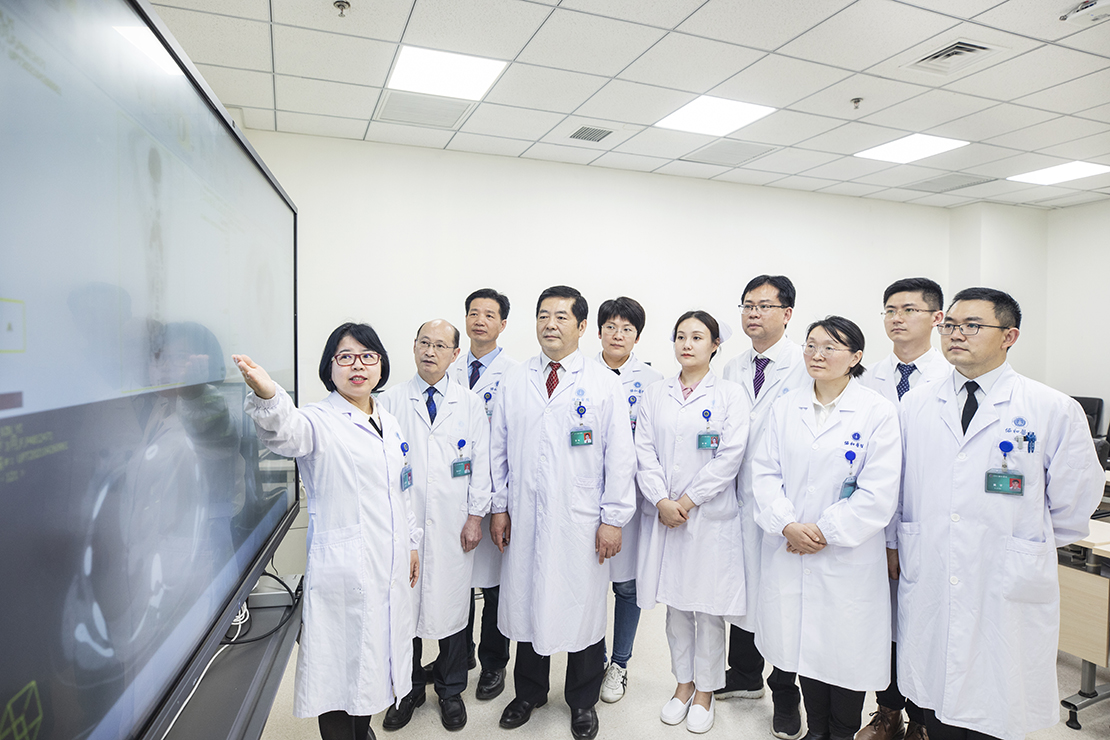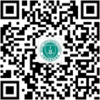Medical Services

Nuclear Medicine Dept.
Brief introduction
Department of Nuclear Medicine, founded in 1959, is a national key clinical specialty of National Health Commission (formerly the Ministry of Health) and national key (cultivation) discipline of Ministry of Education. It is also the host unit of Hubei Provincial Key Laboratory of Molecular Imaging and Hubei Nuclear Medicine Quality Control Center. It has ranked second in the country for six consecutive years on the list of Fudan Medical Specialties.
Department of Nuclear Medicine includes the following six parts: PET/CT center (harboring two sets of GE PET/CT, two sets of medical cyclotrons, and the first PET/MR in Central China); SPECT/CT center (two sets of SPECT/CT and one SPECT); in vitro analysis laboratory; radionuclide treatment clinic; radionuclide therapy ward (28 beds); and the Hubei Provincial Key Laboratory of Molecular Imaging. The key laboratory has a complete set of facilities for chemical preparation, cell culture, molecular biology, animal imaging, and clinical translation. It has one small animal PET/CT, one small animal PET/SPECT/CT, one small animal fluorescence imaging system, and an exclusive animal room with radiation protection and two sets of animal IVC feeding systems, allowing for comprehensive experiments from imaging probe development to animal imaging evaluation in one stop.
For medical treatment, the department has obvious advantages in many aspects such as multi-modal imaging for difficult case diagnosis and radionuclide therapy. Annual PET inspections exceed 10,000 cases, and more than 10 positron drugs are routinely used in clinical practice. SPECT inspections exceed 30,000 annually, covering all tissues and organs throughout the body. Annual radionuclide treatment is more than 2,000 cases, and serves as the leading unit to publish the clinical path for radionuclide hormone therapy of thyroid cancer. It performs more than 700,000 cases of in vitro analysis per year, with services ranging from precise detection of hormone, antibody, to biomarker changes in vivo. In recent years, it has developed many leading technologies and services, including novel tumor-specific molecular probes, absolute quantification of myocardial blood flow, and multi-modal imaging of neurodegenerative diseases.
For scientific research, Department of Nuclear Medicine has undertaken more than 30 General and Youth Programs, and more than 20 Ministerial and Provincial Programs. It has been awarded the first prize of Hubei Science and Technology Progress twice in 2008 and 2018, the second prize of Science and Technology Progress of Ministry of Education, the second prize of Chinese Medical Science and Technology Progress, and the second prize of Wuhan Science and Technology Progress, and other important scientific and technological achievements. The department has three authorized national patents, two utility patents and software copyrights, and has edited more than 30 academic monographs and teaching materials.
For education, the department teaches postgraduates, seven and eight year programme students of clinical medicine, undergraduates and resident doctors every year. It serves as the editors-in-chief of the textbook "Nuclear Medicine" for eight-year medical students and organize the "Nuclear Medicine" MOOC online courses. So far, more than 200 Ph.D. and master students graduated from the department, including 11 foreign graduate students. Several graduate students have become academic leaders and backbones in the field.
The department has a strong technical team of 66 members, with six professors/doctoral supervisors (including four second-level professors), eight associate professors/master supervisors, 21 physicians with doctoral degrees, and 5 technicians/physicists/chemists with doctoral degrees. Since 2001, four experts from the department have served as the chairman of the Nuclear Medicine Branch of the Chinese Nuclear Society, chairman of the Nuclear Medicine Physician Branch of the Chinese Medical Doctor Association, deputy chairman of the Nuclear Medicine Branch of the Chinese Medical Association, deputy chairman of the Nuclear Medicine Youth Committee of the Chinese Medical Association, deputy Editor-in-Chief of Chinese Journal of Nuclear Medicine, Chinese Medical Journal and other important academic journals such as standing editorial board and editorial board position.




